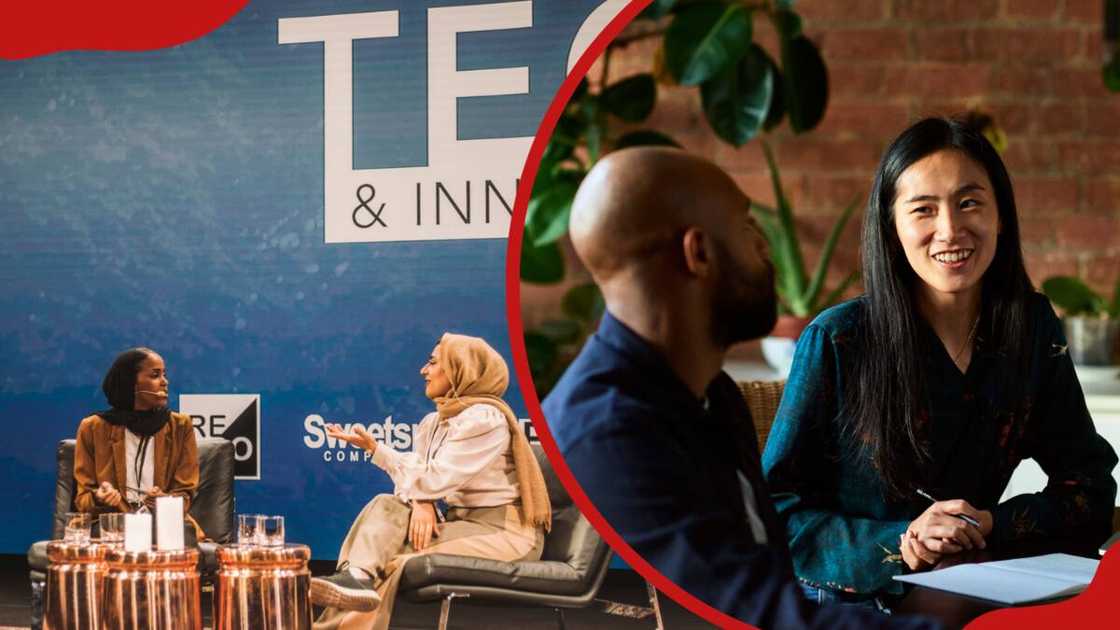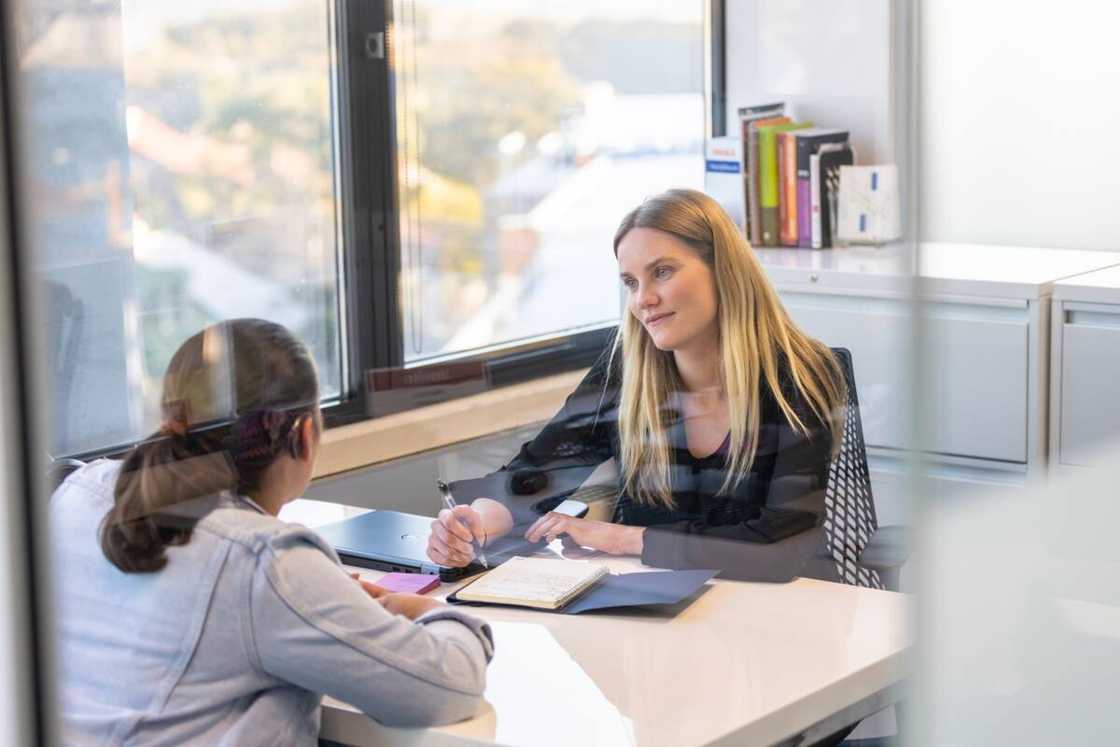Does a Second Interview Mean You're on the Right Track? Find Out Now!
In today’s competitive landscape with a challenging job market, standing out among other applicants is crucial to getting noticed for available positions. Both your present skill set and potential for development play key roles in distinguishing yourself. However, once you ace the initial interview and advance to the next round, what does this mean? Does securing a second interview indicate positive progress?

A second interview is conducted after a prospective candidate passes the first interview. In most cases, it is face-to-face and on-site. Also, second interviews take longer than the first, typically lasting anywhere from a few hours to a full day.
How does the first interview differ from the second one?
The first interview screens many candidates who meet the basic minimum requirements. On the other hand, a second interview digs deeper into a few candidates. Before attending the second interview, you should reflect and evaluate whether:
- Are you interested in working there?
- Is the organization providing the suitable atmosphere for advancing your career?
- Did you ask all the necessary questions during your initial interview?
Does a second interview indicate positive progress?
Absolutely. Receiving a second interview means the organization views you as a potential fit for their open role. This suggests that they are genuinely contemplating your candidacy for the position.
Hence, to land the position, you ought to prepare thoroughly by equipping yourself with all pertinent second-round interview advice.
What to anticipate in a follow-up interview
Depending on the job position and the organization, a second interview could be the final stage of the employment process. However, it is advisable to keep your expectations realistic because it could also be one of the additional rounds of interviews.
When numerous individuals apply for a role, the chances of participating in multiple interviews increase since employers aim to gather extensive details about potential candidates. This process assists them in identifying the perfect fit for the open position.

As the number of candidates decreases, the number of interviewers usually increases. According to Forbes, during the second interview, you are likely to face interviews with higher-ranking personnel such as:
- Team members
- Senior leaders
- Human resource manager
- Hiring manager
Ways to Get Ready for a Second Interview
A successful second interview requires thorough preparation for those aiming to land a job offer. It’s essential to delve deeper into understanding the role, organization, and even your potential interviewer. Below are some valuable suggestions for candidates gearing up for their next round of interviews:
- Be confident and authentic
- Embrace the future
- Resolve any unresolved issues from the initial interview.
- Get ready for outlandish queries.
- Be armed with success stories from your past job
Possible queries for a follow-up interview
In the initial interview, the majority of queries center around your abilities and background. During the subsequent session, the questions help employers picture you in the role. As stated by Indeed, these are the topics you can anticipate being asked about:
Your curiosity about the role and the organization
The interviewer may ask questions aimed at understanding your interest in both the role and their company, such as:
- What aspects of this position appeal to you?
- What aspects of this organization appeal to you?
- What makes you believe your skills are suitable for this position?
- What attracts you more to this role?
Your strengths and weaknesses

To learn more about you, the interviewer will ask about your strengths, weaknesses, and previous impacts through questions such as:
- What aspect of your previous role did you excel at the most?
- What were the most difficult assignments in your former role?
- Share with me a time when you faced difficulties and explain how you dealt with it.
- What do you consider to be your primary area for improvement?
- What accomplishments make you feel the proudest?
Your relationships
Beyond assessing how efficiently you carry out your tasks, most companies will also be interested in understanding how well you interact with those around you. To gauge this aspect, interviewers may pose questions such as:
- How have you been working on establishing strong relationships with your coworkers?
- Can you share an instance where you encountered a disagreement at work and explain how you handled it?
- Give me several examples of your interpersonal skills.
- Which role would you rather assume when working as part of a group?
Your judgement
Here are some questions that can assist interviewers in assessing your judgment abilities:
1.
2.
3.
- What was your approach when you were requested to carry out an unethical task?
- Can you share an instance where you faced a difficult choice and explain your approach to handling it?
Your expectations
In many instances, the additional aspects you seek and desire from the role will be explored through further inquiries made during a subsequent interview. The types of questions you might anticipate encompass:
- What is the salary you anticipate earning?
- Do you work best when alone or with others?
- Do you prefer a hybrid, remote, or in-office working model?
- Which elements of an organization's culture resonate with you the most?
- Where do you perform at your best within different organizational cultures?
- What do you anticipate from the department head?
Your future
To assess your contributions and future potential within the firm, the organization will pose these queries:
- What steps will you take to build your trustworthiness during the initial six-month period?
- What are your expectations for where you'll be professionally in two years' time?
- What are your professional goals?
- What motivates you?

Questions to ask the interviewer
During a second interview, there usually is more opportunity to pose additional queries compared to the initial meeting. Thus, prepare deeper, investigative questions to gain further insights into the role, company culture, and team dynamics.
As per Robert Half, you could pose several insightful and open-ended queries such as:
- What aspects of your work with this company bring you the most satisfaction?
- Which management approaches have you included?
- What methods do you use to assess the performance of your staff members?
- What qualities define your perfect team member?
- What is the biggest obstacle you might face during your initial months at this job?
Frequently asked questions
- A second interview is the structured meeting held following the initial interview for further evaluation.
- The primary distinction between the initial and subsequent interviews is that the former evaluates numerous applicants, whereas the latter focuses on reducing the candidate pool to a more select group of prospects.
- During the second interview, what questions are typically posed? Usually, the interviewer inquires about your plans for adapting to the organization and the ways you intend to contribute.
- Is a second interview harder? During the second interview, the questions become more challenging as the interviewer delves deeper into your qualifications compared to the initial round.
- To ace a second interview, focus on gathering deeper insights into the role, the company, and the person interviewing you.
- Does the second interview take longer than the first? In most cases, it takes longer than the first, typically lasting between a few hours to a whole day.
- Who leads the second interview? Different companies have different preferences for selecting an interviewer. Nonetheless, participants might include team members, senior executives, representatives from human resources, and the hiring manager.
Final word
Is a second interview a good sign? Yes. A second interview means that you are being seriously considered for the role. It is another opportunity to shine and prove worthy. Therefore, you should prepare adequately since it comes with deeper and more specific questions.
.co.ke shared an article on crafting a CV for an attachment application. Securing an internship or attachment can be daunting, especially without previous job experience. It’s essential to create a compelling attachment as this will help build valuable skills and lay the foundation for your career ahead.
Many newly minted graduates and present-day students frequently look for guidance on crafting a resume that stands out. Highlighting your academic credentials, relevant abilities, and additional activities can showcase your value to prospective employers.





